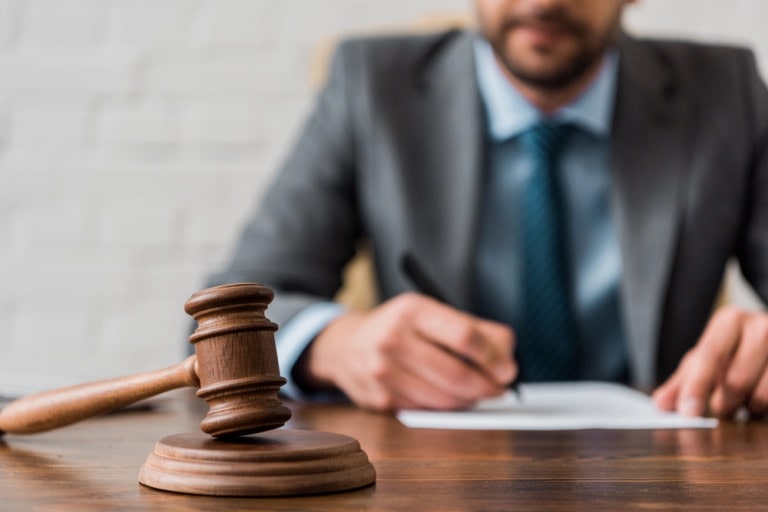How to Prepare for a Consultation with a Lawyer?

Meeting with a lawyer for the first time can be an intimidating experience, especially if you’ve never had to deal with legal issues before. Whether you’re seeking advice on family law, personal injury, or a business matter, being prepared for your consultation is key to ensuring that you get the most out of your time. Proper preparation can help clarify your legal situation and make the sit-down more efficient, potentially saving you time and money—and here’s a brief guide to help direct you with that meeting.
Clearly Define Your Legal Issue
Before meeting with a lawyer, it’s important to have a clear understanding of why you’re seeking legal help. Are you dealing with a family dispute, such as divorce or child custody? Do you need assistance with drafting a contract or resolving a business conflict? Clearly defining your legal issue will help the individual assess your situation more accurately.
Take some time to write down the specifics of your situation, including any key events, dates, and individuals involved. If there are any legal documents or correspondence related to your case, gather those as well. The more information you can provide, the better equipped the attorney will be to advise you.
Gather Relevant Documents
Having all the necessary paperwork ready for your consultation is essential. The documents you’ll need will depend on the type of legal issue you’re facing, but here are some common examples:
- Family Law: Marriage certificates, separation agreements, child custody arrangements, financial statements, or any court orders.
- Personal Injury: Medical records, accident reports, insurance information, and any correspondence with the other party or insurance companies.
- Business Law: Contracts, agreements, financial statements, or any correspondence related to your legal matter.
- Estate Planning: Property deeds, bank account statements, insurance policies, and any existing wills or trust documents.
Bringing these documents to your sit-down allows the lawyer to get a clear picture of your situation and provide more accurate advice. It also prevents the need for follow-up meetings or delays due to missing information.
Prepare a List of Questions
One of the main goals of your consultation is to get answers to any questions or concerns you have about your legal issue. Preparing a list of questions beforehand will help you stay organized and ensure that you don’t forget to address any important points during the meeting. Some common questions to ask during your meeting include:
- What are my legal options?
- What is the likely outcome of my case?
- How long will the legal process take?
- What are the potential costs involved, including legal fees?
- How will you keep me informed about the progress of my case?
- What are the next steps?
Asking these questions will give you a clearer understanding of your situation and what to expect moving forward.
Be Honest and Transparent
It’s important to be completely honest and transparent during the meeting. Even if certain details of your case are embarrassing or difficult to discuss, withholding information can hinder your lawyer’s ability to represent you effectively. Remember, anything you share is confidential, and they are there to help, not judge. Provide as much detail as possible, including any facts that might seem unfavorable to your case. Your lawyer needs the full picture to give you accurate legal advice and to prepare for any potential challenges.
Understand the Costs
During your consultation, the lawyer will likely discuss their fee structure. It’s essential to have a clear understanding of how much their services will cost and how they charge for their time. Most firms, like the team at Dunlap Law, charge either an hourly rate or a flat fee, depending on the type of legal matter. Some may also require a retainer—an upfront payment that secures their services.
Ask about any additional costs that may arise, such as court filing fees, administrative expenses, or charges for expert witnesses. Understanding the financial aspect of your case from the beginning will help you budget accordingly and avoid surprises down the road.
Know What to Expect Next
Before leaving the consultation, make sure you have a clear understanding of the next steps. Your lawyer should explain what actions will be taken immediately and what you can expect throughout the process. This might include filing documents, attending court hearings, or entering negotiations.
Ensure that you know how to stay in touch with your attorney and how frequently you’ll receive updates. Clear communication is crucial for a successful relationship, so don’t hesitate to ask about the best ways to stay informed about your case.
Partner with Experts in All Areas of Law
Preparing for a consultation doesn’t have to be overwhelming. By taking the time to gather important documents, write down key questions, and clearly define your legal issue, you can ensure that your meeting is productive and informative. This preparation will not only help your lawyer provide you with accurate advice but also allow you to make informed decisions about your legal matter. With the right approach, your discussion can be the first step toward resolving your legal concerns effectively.





